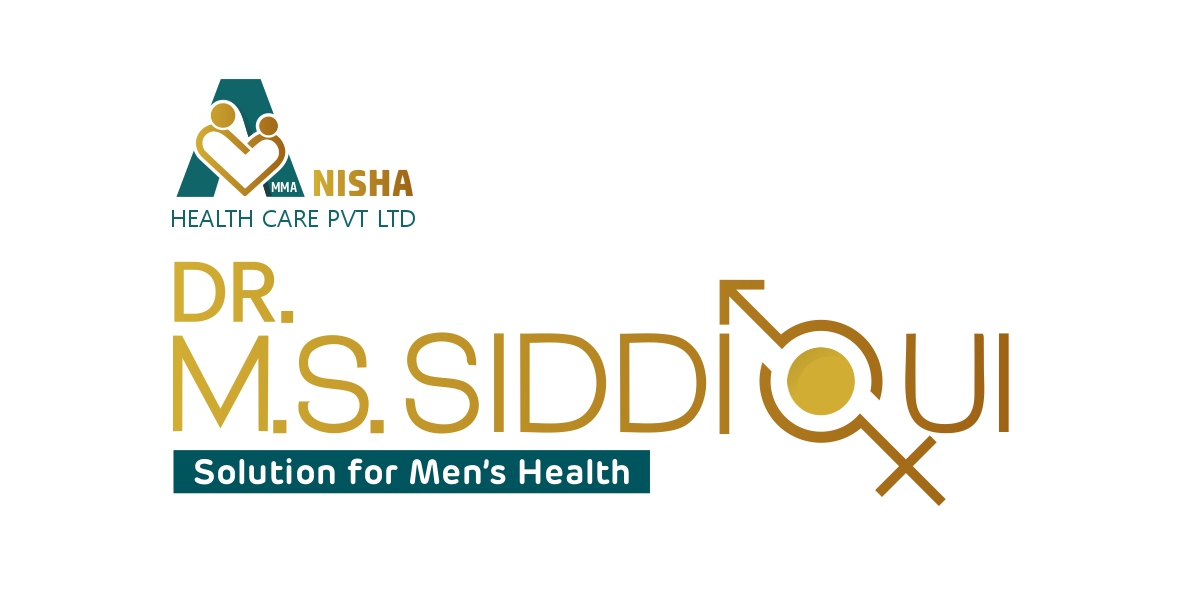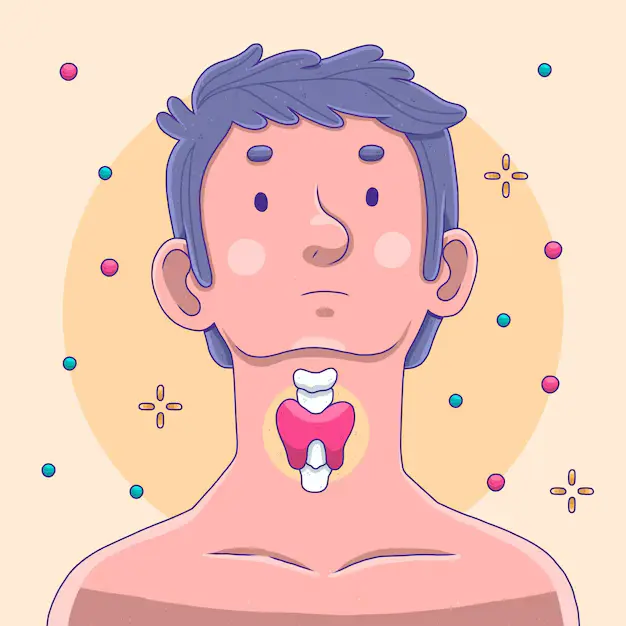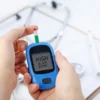Hypothyroidism (Underactive Thyroid): Understanding and Managing It
Hypothyroidism. The name sounds big, but in simple words – it means your thyroid gland is not doing its job fully. The thyroid is that small butterfly-shaped gland sitting in the neck. It releases hormones (mainly T3 and T4) that keep your body’s metabolism, energy, and even mood in balance.
When this gland slows down, the whole body feels the effect. Some people call it “sluggish thyroid,” some say “underactive thyroid.” Medical term is Hypothyroidism.
Why Does Hypothyroidism Happen?
There isn’t just one reason. Different patients have different stories.
Autoimmune thyroiditis (Hashimoto’s disease) – This is the most common cause worldwide. The body’s own immune system attacks the thyroid, slowly destroying its ability to work.
Iodine deficiency – Still seen in many areas where diet is low in iodine.
Post-surgery or post-radioactive iodine therapy – People treated for hyperthyroidism or thyroid cancer may later develop hypothyroidism.
Certain medications – Lithium, amiodarone, and even some cancer therapies.
Genetic or congenital hypothyroidism – Some babies are born with a weak or absent thyroid gland.
👉 Many patients actually don’t know the cause until proper blood tests are done.
Symptoms – How Does It Really Feel?
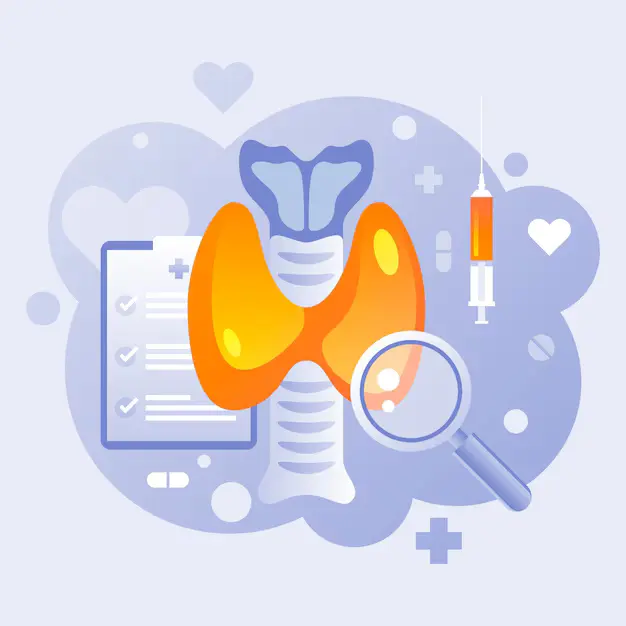
This is where things get tricky. Symptoms of hypothyroidism are slow, vague, and often blamed on stress, aging, or lifestyle. A typical patient may keep suffering for months before thinking of a thyroid test.
Common signs include:
Tiredness – Not the normal “after work” tired, but that constant dragging fatigue.
Weight gain – Even when diet hasn’t changed.
Feeling cold – While others are comfortable, you’re shivering.
Dry skin and hair fall – Many women first complain about hair thinning.
Slow heart rate, constipation, muscle cramps – Subtle but real.
Depression, poor memory, low mood – Thyroid hormones directly affect the brain.
Menstrual irregularities, infertility issues – In women, periods may become heavy, irregular, or absent.
Swelling in face, puffiness around eyes, hoarse voice – Classic signs in longstanding untreated cases.
One of my patients once told me: “Doctor, I sleep early, wake up late, still I feel like I haven’t slept at all.” That’s how deep the fatigue can be.
Hypothyroidism in Men vs. Women
Women are more affected (especially between ages 30–50). They often come with menstrual issues, infertility, or unexplained weight gain.
Men may complain more of low libido, muscle weakness, and mood changes.
Even children and teenagers can get it – leading to delayed growth, poor school performance, or late puberty.
How Is Hypothyroidism Diagnosed?
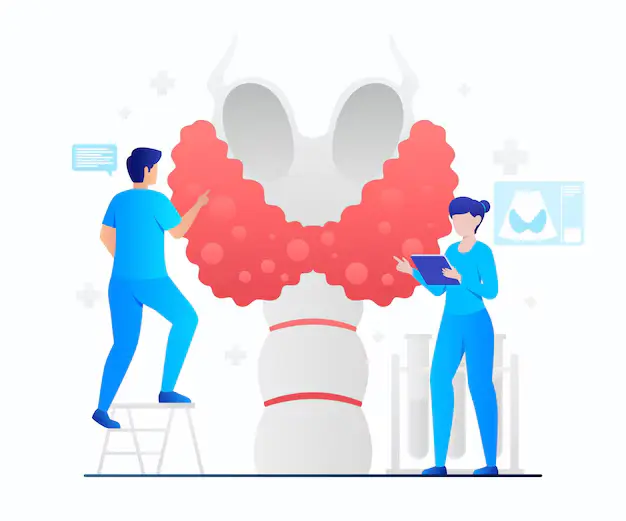
Simple blood tests are enough in most cases:
TSH (Thyroid Stimulating Hormone) – High in hypothyroidism.
Free T4 (Thyroxine) – Low in hypothyroidism.
Anti-TPO antibodies – Often high if it’s autoimmune thyroiditis (Hashimoto’s).
👉 The combination of high TSH and low T4 usually confirms the diagnosis.
Lifestyle Adjustments That Help
Medication is the backbone, but lifestyle matters too:
Balanced diet – Enough protein, fresh vegetables, whole grains.
Iodine intake – Table salt with iodine usually covers this. Don’t overdo iodine supplements unless advised.
Selenium & Zinc – Nuts, seeds, seafood help thyroid function.
Exercise – Light to moderate exercise reduces fatigue and keeps weight under control.
Stress management – Stress worsens symptoms. Yoga, meditation, deep breathing can make a difference.
Hypothyroidism and Mental Health
A lot of patients come complaining of depression, poor focus, even anxiety. Thyroid hormones influence neurotransmitters like serotonin and dopamine. So when levels are low, mood suffers. Correcting thyroid balance often improves mental health too.
Still, some patients may require counseling or psychiatric support alongside thyroid treatment.
Conclusion
Hypothyroidism may sound like a small hormonal issue, but it touches every aspect of life – energy, mood, weight, relationships, fertility, even heart health. The good news: once diagnosed, it is very treatable. With the right medication, diet, and lifestyle, most people live completely normal lives.
If you often feel tired without reason, are gaining weight despite no big changes in diet, or your mood feels “off” for months – don’t ignore it. A simple thyroid test may reveal the cause.
Visit Nisha Health Care Clinic












Meet Our Expert Team
Dr. M.S. Siddiqui – General Physician & Certified Sexologist
Dr. Ruby Siddiqui – Gynecologist & Infertility Specialist
Dr. Raj Brahmbhatt – Sexologist & Marriage Counselor
Dr. N.A. Siddiqui – Senior Consultant, Medical Oncology
Dr. Haseeb Khan – Neuropsychiatrist, De-addiction Specialist & Sleep Expert
 Follow Us for Updates
Follow Us for Updates
YouTube: @DrMSSiddiqui
Facebook: Dr. M.S. Siddiqui
Instagram: @dr.ms_siddiqui
Twitter (X): @DrMSSiddiqui1
FAQs on Hypothyroidism
1. Is hypothyroidism permanent?
In most cases, yes. Especially autoimmune hypothyroidism usually requires lifelong treatment. But the tablets are safe and effective.
2. Can hypothyroidism cause infertility?
Yes. Both men and women can face fertility issues. Correcting thyroid hormone levels often improves fertility.
3. What foods should be avoided?
Too much soy, excess raw cruciferous vegetables (like cabbage, broccoli), and high-dose iodine supplements should be avoided unless advised by a doctor.
4. Does hypothyroidism cause depression?
Yes. Low thyroid hormones affect brain chemicals, leading to depression and poor concentration. Treatment usually improves mental health.
5. How soon do symptoms improve after treatment?
Some symptoms improve within 2–3 weeks, but full recovery of energy, hair, and mood may take a few months.
